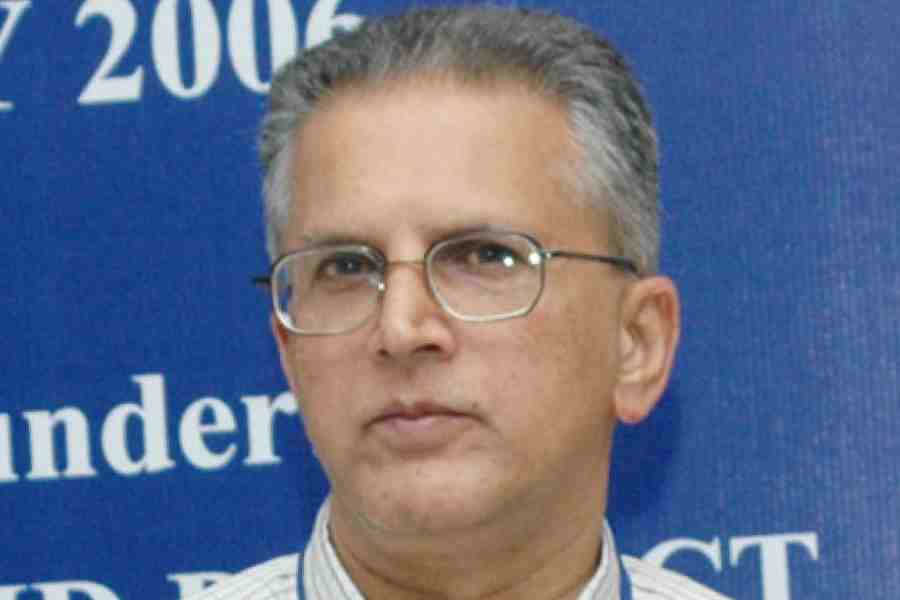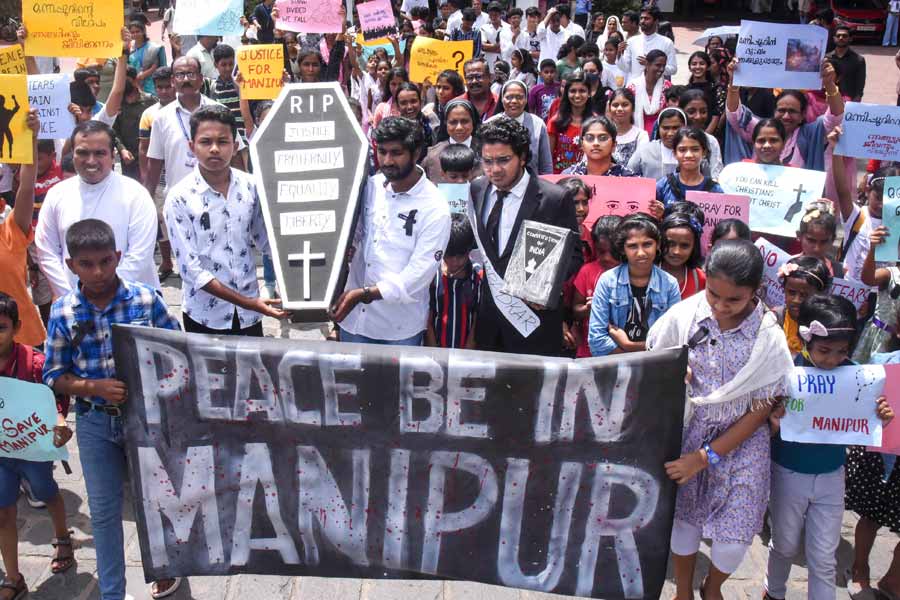Former home secretary G.K. Pillai on Monday accused the Narendra Modi government of following a sectarian political strategy in strife-torn Manipur by deliberately siding with the majority Meitei community and felt that the Prime Minister would have been “well advised” to reach out to the people of the northeastern state at the earliest.
In an interview with journalist Karan Thapar for The Wire news portal, Pillai termed the situation in Manipur as “unheard of in post-independence India”.
“Yes, no doubt about it,” Pillai replied, asked if he meant that the “Government of India has taken sides in the Meitei-Kuki conflict and it has taken the side of the Meitei”.
“It’s unfortunate but that’s politics today,” he added.
The interview came ahead of the one-day Assembly session in Manipur and the boycott call given by the Kuki legislators and some other MLAs.
Pillai, who was Union home secretary for two years when Manmohan Singh was Prime Minister, said “political issues” had taken precedence over “constitutional aspects” in handling the crisis and it was evident in the central government’s refusal so far to sack chief minister N. Biren Singh despite a total breakdown of law and order in the state.
Had he been the home secretary, Pillai said, he would have advised the government to “dismiss” the chief minister, try out someone else at the helm in the state and opt for President’s rule if that too failed.
Asked about Union home minister Amit Shah’s statement in the Lok Sabha that defended the chief minister and ended up “annoying and offending” the minority Kuki community, Pillai said: “Well, that is what I think the strategy was. So I don’t find anything new.... This was the strategy of the BJP….”
He felt that by defending the chief minister, Shah sent out a “wrong signal” not only to Manipur but to other states as well.
Asked about the long silence of Modi and his refusal to intervene by reaching out to the people of Manipur, Pillai at first sought not to criticise the Prime Minister, saying it could be the Prime Minister’s call to allow the home minister to handle the situation but later felt it was a wrong call.
“I think any Prime Minister in a situation of this nature needs to reach out to the people. Because he is the PM of all of India and, therefore, he needs to reach out at the earliest…,” Pillai said. He was replying to a question about whether had the Prime Minister reached out, it would have sent out a message that “he personally cares” and it would have made a difference.
“Reports coming out of Manipur showed a real issue unheard of in post-independence India, and I think the PM would have been well advised to have intervened personally and see where it works from there,” Pillai added.
On being pressed further if he wanted the Prime Minister to intervene in the early stages, the former bureaucrat said Modi should have intervened after the home minister’s visit to the state failed to calm the situation in the state.
He lauded Shah for spending three days in Manipur, pointing out that it was “unheard of in a law and order situation in the post-independence situation in the country”.
“When that didn’t work, I think the Prime Minister should have stepped in,” Pillai said. “He could have visited Manipur; he could have called people across, anyway. Just the fact that the PM was concerned would have made a tremendous difference because for the people of the Northeast, the human touch is very very critical for them and it would have made a tremendous impact,” he added.
Slamming the handling of the situation on the ground, Pillai said that he had not seen such an incompetent and ineffective response to a crisis in his entire career.
He said that the first and foremost step towards restoring law and order should have been recovering the stolen weapons. Pillai said that the administration should have raided houses to recover the stolen weapons but that didn’t happen, making the failure of the state government very clear.












